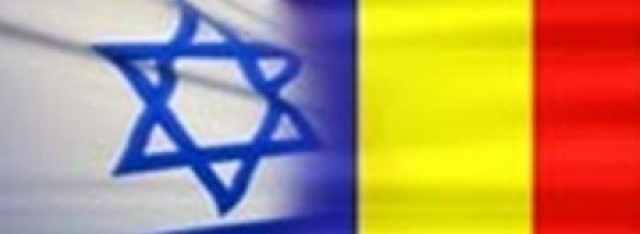From Romania to Palestine and Back
The presence of Jews in Romanian space is a very old one, they are attested sporadically as far back as the Roman conquest of Dacia

Steliu Lambru, 11.09.2023, 14:00
The presence of Jews in Romanian space is a very old one, they are attested sporadically as far back as the Roman conquest of Dacia. They become visible from the 14th century onward, when the oldest chancellery documents of the Romanian Principalities date to. In the 19th century, when nationalism appeared and developed everywhere in the world, Zionism was also born with an important presence in Romania where, according to the 1930 census, about 730,000 Jews lived, about 4% of the total population. But the appearance of Fascism and anti-Semitism in Romania, a local manifestation of a European trend, made many Jews choose to go to Palestine, which was under a British mandate since the end of the First World War.
Each of those who left had a unique destiny, each destiny is a story. In 1995, the Romanian Broadcasting Corporation Oral History Center interviewed Samuel Stein, and thus we learned his story while staying in the territory of Palestine, the choice for many Jewish people, and his return to Romania. Like any energetic young man, Stein adhered to radical life concepts and political views. He joined the communist youth out of conviction, and was arrested for communist activity in 1935 and imprisoned in the Doftana penitentiary until 1936. At the time of the interview, in 1995, he remembered characters we read about in history books today, such as the jurist and politician Wilhelm Filderman, the leader of the Jewish community in Romania, and Iuliu Maniu, the president of the National Peasant Party.
I didn’t have a very good opinion of Filderman, because he was with the Liberals, and the Jewish party of Transylvania, which also included Jews from Bucovina, Bessarabia, some from the Old Kingdom, who were more connected to the National Peasant Party. Most of the Jews, especially from Transylvania and the allied provinces, were on the side of the National Peasant Party, they were with the Jewish party, which was a Zionist party. I was not a Zionist, I was a communist. What turned us against Maniu and the National Peasant Party was his pact with the Legionnaires, which greatly elevated the Legionnaires. Until then, they were vagabonds, scoundrels, that’s how everyone knew them, and I’m not speaking as a Jew, I’m speaking as the Romanians saw them.
Samuel Stein was a Jew fully integrated into Romanian society, as were the overwhelming majority of Jews who became Romanian citizens after 1918.
I had many Romanian friends, as I behaved in the army as well, through my way of acting, in order to get somewhere in the army, and I was friends with everyone. Even a Legionnaire came to me, after a while, to hide his homemade cakes, because he was afraid that the others, his own comrades, would steal them. So he came to the jidan Stein to help him. And I helped him. Many times we talked with him about his Legionary convictions, but he said he had no way out, that if he did, they would kill him.
In 1939, Stein made the decision to go to Palestine. Embarked in the port of Constanța, together with 780 other Jews, on a cattle transport ship , he was looking for a new homeland. In the Dodecanese archipelago, not far from the island of Rhodes, the 780 Jewish passengers were evacuated due to a fire on board. Embarking on another ship sent by a Zionist organization, they finally arrived in Palestine. This is where Stein’s second life begins. He joined the Communist Party, but his refusal to join the army causes the party to exclude him. He chose to work for a year in Kibbutz Ramat Rahel near Jerusalem.
I think the kibbutz was 100 dunams (about 10 hectares), I don’t remember how many people were there. Some worked in the city in Jerusalem, some were farmers there in the kibbutz, others went to the Dead Sea. I mean, this integration was done gradually: you stayed there for about two weeks, at the Dead Sea, first you worked unloading and loading vessels from the Dead Sea and loading some trucks that took the loads to Jerusalem. Other times you also worked as a kind of porter at the train station in Jerusalem. We were carrying 100-kilogram bags on our backs.
Asked about Jewish relations with Arabs, Samuel Stein has no personal memories of tension or violence.
One day I left Ramat Rachel for Jerusalem, where I had two relatives. I went to my relatives and then I walked home. When they found out that I went home on foot to Ramat Rahel, they said to me: ‘You dolt, what have you done? The Arabs could have killed you on the way.’ I, myself, had no real problem. I even remember, at one point, I was on duty somewhere and an Arab came to me and said that he too would like to become a Jew. To which I replied that I was not qualified for such things, and sent him on his way.
The Second World War, however, made him enlist in the Jewish brigade in the British army, and participated in the battles in North Africa, southern Italy, France, and Belgium. After the war, in 1947, Samuel Stein made a choice of life again: he would return to Romania.





























